 |
Bay to Ocean Writers Conference 2024
Session Descriptions
NON-Fiction / CRAFT, Editing |
Non-Fiction 9:00AM – 9:50AM In school we're often taught the five-paragraph essay--make a big claim, give three examples, and then say it again in the conclusion. But life is more complicated than that and a good essay should not only reflect but embrace that complexity. In this session we'll look at the way several different essayists end their essays without tying them up in a neat red bow. We'll also do some writing exercises to try some honest and open endings of our own. Bring a work-in-progress of your own if you can (but it's not required) as well as a notebook, pen, and a spirit of exploration and play.
10:00AM – 10:50AM This generative session will be lead by Lynne Schmidt, a mental health professional who has a focus in trauma informed care and emotion focused therapy. Memoirists and creative nonfiction writers should develop skills around grounding themselves when faced with traumatic memories, and how to write through it. Three to four prompts will be offered, as well as space for sharing small segments as comfortable.
11:00AM – 11:50AM Drawing from their experience with writing their memoirs, this husband-and-wife team will discuss the essential elements for producing a captivating memoir. Learn how to turn loose and disjointed memories into coherent stories. The session will include an exercise to jumpstart your memoir writing process.
1:30PM – 2:20PM An index guides the reader to key issues described in a nonfiction book. Join Judy Reveal, a professional back-of-the-book indexer, who will explain why an index helps your reader travel easily through your book, find the answers they are seeking, and build interest in purchasing your book. Judy will guide you into building a powerful index that resonates with your readers!
2:30PM – 3:30PM A braided essay weaves together several seemingly disparate events, observations or memories, to create one entertaining and resonant piece. The essay's true subject is revealed as you alternate topics with varying degrees of tension. You may be watching your father build a fence, planning a birthday party for your son, remembering the last day of your mother's life, and by the end of the essay the reader will see how each of these events is linked, how these 3 separate stories are one. Using published examples, we will make this technique our own.
| Craft, Editing Spells or Newscasts? Jane Edna Mohler In this workshop we'll consider how to write poems that behave as spells. Poetry readers don't want "just the facts". Instead, they want to experience something, a unique vision that invites them in and changes their outlook if only for a minute. We'll look at frequent habits that weaken poems. Then we'll shake things up as participants work from a prompt asking us to say "Yes!" when normally we'd say "No!" There will be time for Q&A and discussion about submitting your poems to journals.
10:00AM – 10:50AM Have you ever wanted your poems to push you outside of your comfort zone to become something different--different from your past work, different rhythms and voice that you didn't know you had inside? This workshop will focus on strategies using line breaks to push you into the deeper rhythmic structures of your poem-in-progress, creating space for different voices to emerge. We'll explore the tension between where breath versus syllabic count leads to different line breaks.
11:00AM – 11:50AM Learning how to give a constructive critique helps not just the author, but also the reviewer as they can often apply their observations to their own writing. This presentation will cover how to give a thoughtful critique, including examples of what types or remarks to avoid. It will help the critiquer separate preference (like/dislike) from quality (well written/poorly written) and how to focus their comments to help the author find and refine their own voice—not dilute or change it. It will include techniques help the critiquers solidify and convey their thoughts constructively. Learning to make use of the feedback is as important as giving constructive feedback. The author is the ultimate arbiter of how useful the commentary is. It's important to know it is ok to make use of some of the notes, and ignore others, which ultimately depends on the writer's goals. Join D.J. Stevenson as she meticulously explains how to set goals for what you'd like to receive in critiques.
1:30PM – 2:20PM When it comes to writing historical fiction and even poetry, it's the small details that help the past come alive in readers' minds. What would your characters have worn, what music would have thrilled them, what did they think of the events that they lived through? These details can be drawn from research, family stories, and even experiences such as historical reenacting. Join us as we share methods that the historically curious writer can use for crafting engaging stories and poems set in the past. You will also have an opportunity for a writing exercise to mine your own family history for details to spark a story or poem.
PAT VALDATA is a novelist and poet. Her most recent novel, Eve’s Daughters, won first prize in the novel category from the Delaware Press Association and received an Honorable Mention from the National Federation of Press Women. Her other books are a historical novel, The Other Sister, which won a gold medal from the Hungarian Association’s Árpád Academy, and a coming-of-age novel about women pilots, Crosswind. Her book of poetry about women aviation pioneers, Where No Man Can Touch, won the Donald Justice Poetry Prize. A revised edition of the book was published in 2020 by Wind Canyon Books. Pat is a retired university professor (almost always an adjunct) who now lives in Crisfield, Maryland. 2:30PM – 3:30PM Liverpool, UK-born Christopher T. George gives a special St. Patrick's Day performance of his short stories and poems about Ireland plus works of Irish-born writers such as William Butler Yeats, James Joyce, Seamus Heaney, Paul Muldoon, and Brendan Behan. The Troubles in Ireland, the confrontation of Catholics and Protestants will be addressed, incidents such as Bloody Sunday in Derry and the U2 Song about that famous moment in the Troubles, the 19th Century Potato Famine and the emigration of Irish. Also the session will cover Irish worthies such as the late Sinead O'Connor, Jack Yeats, Michael Collins, James Connolly, Bernadette Devlin, and Bobby Sands. Chris's presentation will include photographs by Irish American photographer and teacher Denny Lynch who will be on hand to talk about his images and his own adventures in Ireland and his links to the Irish Railroad Workers Museum in Baltimore. The audience will be given prompts to write about Ireland and to share their poems or stories written during the session or previously written.
|
More Session Descriptions |
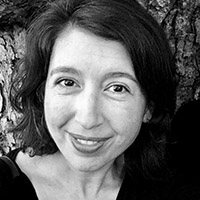 RANDON BILLINGS NOBLE
RANDON BILLINGS NOBLE 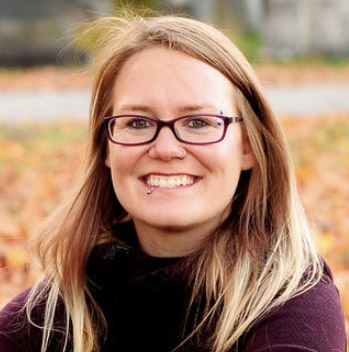 LYNNE SCHMIDT
LYNNE SCHMIDT 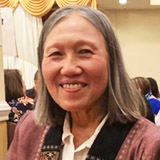 VERONICA LI
VERONICA LI 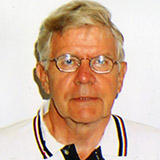 SVERRIR SIGURDSSON
SVERRIR SIGURDSSON 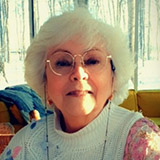 JUDY REVEAL
JUDY REVEAL 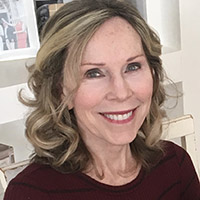 LAURA J. OLIVER
LAURA J. OLIVER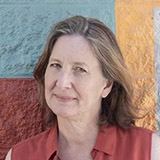 JANE EDNA MOHLER is a Bucks County Poet Laureate Emeritus (Pennsylvania). Recent publications include
JANE EDNA MOHLER is a Bucks County Poet Laureate Emeritus (Pennsylvania). Recent publications include 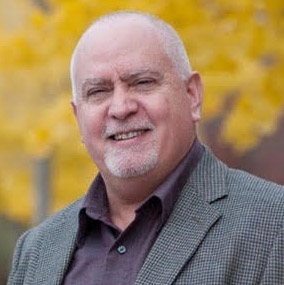 BHODI TIMS
BHODI TIMS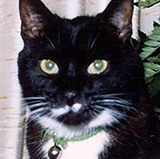 D.J. STEVENSON, author, editor, publisher, book designer, and translator, has published twenty-six novels and ninety-five short stories. She writes essays and reviews for the "Outside In" series and for the
D.J. STEVENSON, author, editor, publisher, book designer, and translator, has published twenty-six novels and ninety-five short stories. She writes essays and reviews for the "Outside In" series and for the 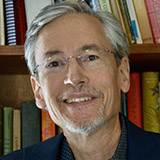 Longtime ESWA member DAVID HEALEY spent 21 years as a reporter and editor for newspapers in the region. His first novel was published by an imprint of Penguin Putnam, and he has since written nearly 30 nonfiction books and novels that are often inspired by local legends and stories. A graduate of Washington College and the Stonecoast MFA program at the University of Southern Maine, he is a full-time faculty member in the Department of English and Rhetoric at Purdue University Global.
Longtime ESWA member DAVID HEALEY spent 21 years as a reporter and editor for newspapers in the region. His first novel was published by an imprint of Penguin Putnam, and he has since written nearly 30 nonfiction books and novels that are often inspired by local legends and stories. A graduate of Washington College and the Stonecoast MFA program at the University of Southern Maine, he is a full-time faculty member in the Department of English and Rhetoric at Purdue University Global.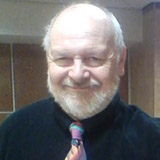 CHRISTOPHER T. GEORGE was born in 1948 in Liverpool, England, and came to the United States in 1955. He is now a resident of Newark, Delaware. Chris's poetry has been published worldwide, including in
CHRISTOPHER T. GEORGE was born in 1948 in Liverpool, England, and came to the United States in 1955. He is now a resident of Newark, Delaware. Chris's poetry has been published worldwide, including in 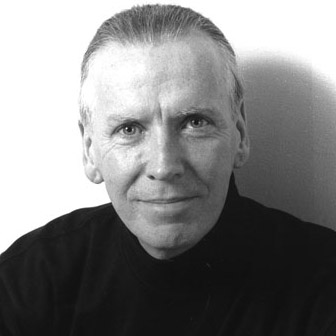 Photographer
Photographer 

